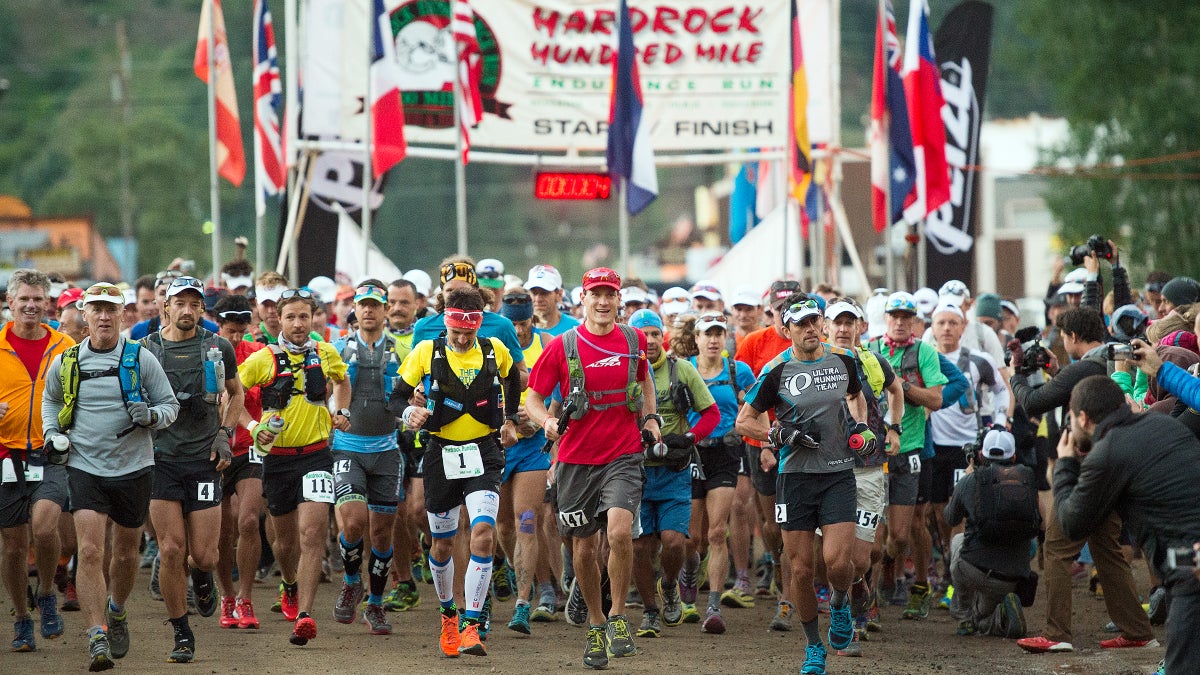No products in the cart.
Outdoor Adventure
The Hardrock 100 Just Changed Its Controversial Lottery System
This morning, for the first time in three years, 146 runners lined up at the Hardrock 100 start line in downtown Silverton. The famous trail ultra—often referred to as one of the hardest in the world—had been on a forced hiatus, first due to avalanche debris and then due to COVID.
But the bigger news came one day before athletes would head off on the steep, exposed route through the San Juan mountains: starting in 2022, the entrance lottery system will make it a little easier for women to earn a spot in the race. The new procedure dictates that the percentage of women in the race field can never be lower than the percentage of women who apply. If 20 percent of the applicants are women, 20 percent of the race field will be women too, and so on.
In this year’s race, 16 of starters are women—around 11 percent. Under the new system, there would have been 25 women on the start line to reflect that they made up 17 percent of the total number of applicants. It would have been the biggest women’s field in the race’s history.
Let’s back up. Hardrock is not just difficult to complete. It’s also difficult to get into. Due to permitting restrictions, the race can only have between 145 and 155 runners. Every year, more than 2,000 applicants vie for those coveted slots. A complex lottery system places runners into three categories: veterans who have run the race more than five times, those who’ve never run the race, and then everyone else, with a fixed number of starting spots for each group. The setup gives the best odds to the small group of veterans and the slimmest chance to the “never” applicant pool—which is the biggest, and usually includes the most women.
For years, people in the trail community have criticized Hardrock’s system for perpetuating historical gender biases, favoring the (predominantly white male) old-timers who have been running the race since long before women’s participation in trail running took off. Hardrock is far from the only trail race that has a problem with gender imbalance. As Outside reported in 2018, the starting fields of most lottery-based 100K and 100-mile trail races are usually less than 25 percent women—often closer to 10 or 15 percent for popular events.
To combat this, some in the running community have advocated for increasing the set number of spots open to women in a given race. In 2019, the High Lonesome 100 announced a new plan to evenly split its lottery—50 percent of spots to men, and the other 50 to women.
Hardrock’s new policy is the result of six months of brainstorming and planning between board members and other long-time members of the ultra community, including Gina Lucrezi, who founded the advocacy group Trail Sisters, and runners Darcy Piceu, Nikki Kimball, Megan Hicks, and Katie Grossman. The group spent hours hashing out options and then crunching the numbers on how various plans would shake out.
They hope the new system will both level the playing field and encourage more women to get involved in the sport on a broader scale. The basic idea: the more women who apply to Hardrock each year, the more spots there will be for women in the field. Lucrezi says it gives women ownership over their own growth potential in the race. “We’re not doing handouts,” she says. “If you want to be in the race, you have to show your interest. But it also holds Hardrock responsible to make sure we’re representing that interest.” It’s a way of meeting in the middle. Race organizers are giving would-be women Hardrockers a better shot at participating in the race, but that opportunity is contingent upon more women seeking involvement in the first place.
Inevitably, Lucrezi knows not everyone will be happy with this solution. Already, online discussion among ultrarunners has questioned whether this will do enough to transcend the exclusivity of what many refer to as the “Hardrock family.”
In the meantime, Lucrezi hopes this policy change will help pave the way forward for other races to follow suit. “There are some institutionalized processes here, and it takes a lot to move those things,” she says. “If we can make this change at Hardrock, I have faith that a lot of other races have the ability to change.”
Source link

